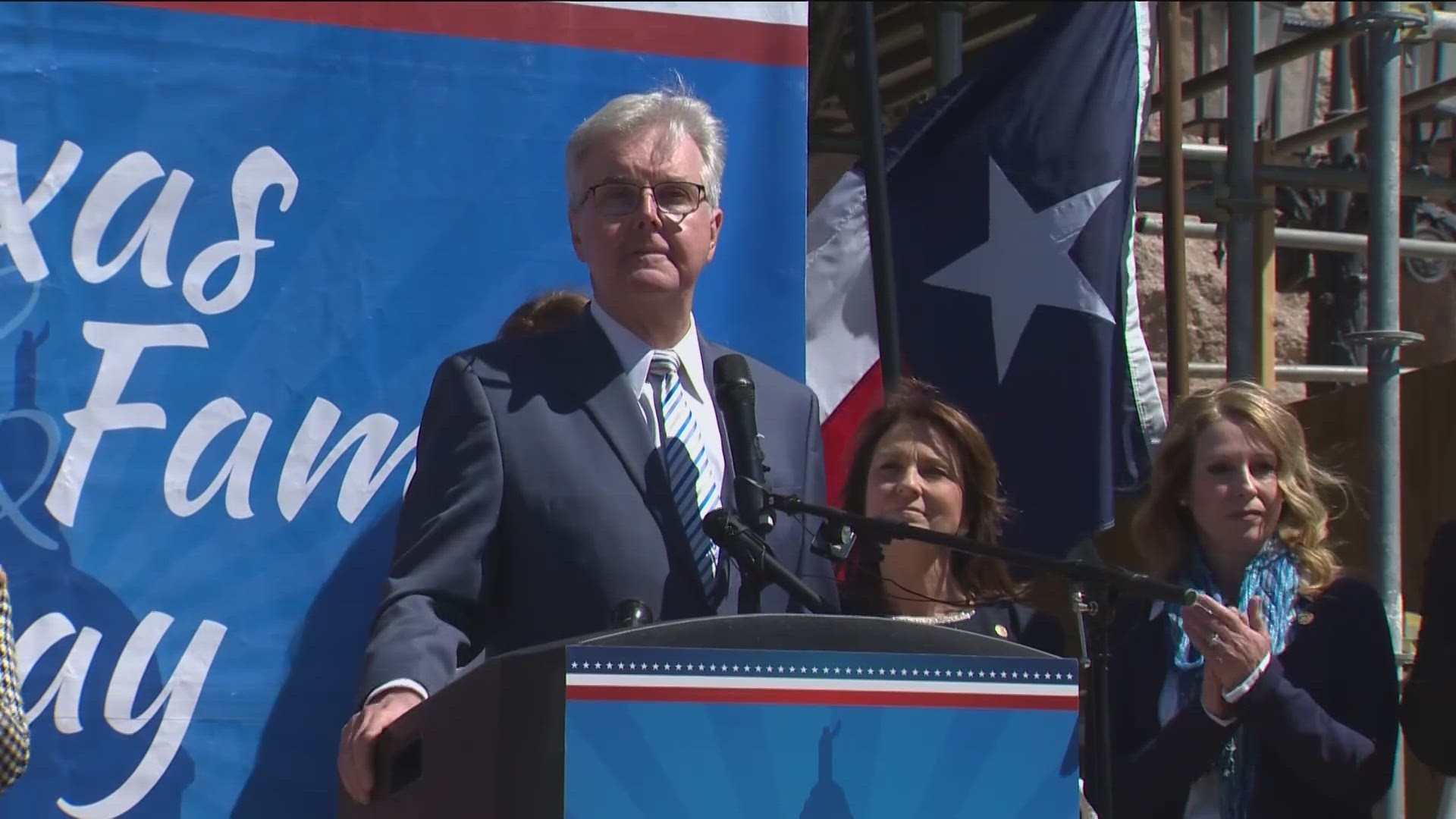AUSTIN, Texas — On Monday, the Texas Senate Committee on State Affairs heard a bill to restrict competition by transgender athletes in collegiate sports. It is the first hearing this session involving legislation that affects the LGBTQ community.
Senate Bill 15, authored by State Sen. Mayes Middleton (R-Galveston), would require collegiate athletes to compete according to their sex at birth.
The committee did not vote on the bill but can take it up during any future meeting. The next stop will be a debate by the full Senate, if SB 15 makes it through committee.
The bill is one of Lt. Gov. Dan Patrick’s priorities this session. Gov. Greg Abbott also backs the legislation.
SB 15's hearing comes on the same day as "Texas Faith and Family Day" at the Capitol. A rally was held by GOP lawmakers pushing for legislation surrounding school choice, stopping "gender mutilation," banning critical race theory in schools and "saving women's sports" – referring to SB 15.
Patrick said these are all issues he knows Abbott supports.
"Not only do [the bills] need to pass the Texas Senate, which they will," Patrick said at the rally, "They need to pass the Texas House and they need to be signed by the governor, who I know supports these bills."
At Monday's rally, National Collegiate Athletic Association (NCAA) swimmer Riley Gaines said she once tied in a swimming race with a transgender woman, Lia Thomas.
Gaines said despite tying for first place, the NCAA gave the trophy to Thomas. She said they said she was told it was for "photo opportunities."
"I was waiting for a coach or a parent or someone within the NCAA, someone who was supposed to be protecting us to protect us," Gaines said. "But then it hit me – if we as female athletes aren’t willing to speak up for ourselves, how can we expect someone else to stick up for us?"
Gaines made it clear she did not feel it was fair that Thomas got to compete against biological women. She said she thought the NCAA would "see it for what it is," that Thomas – formerly known as Will Thomas – ranked in the 460th range in collegiate swimming as a man, then found herself on the leader board as a transgender woman competing in women's swimming.
Gaines said she thought the NCAA would intervene.
"They, of course, saw nothing wrong with this," Gaines said.
At the Capitol steps, chants saying "save women's sports" could be heard.
Equality Texas, a LGBTQ+ advocacy organization, was also at the Capitol on Monday amid the day's rally and theme. Ricardo Martinez, CEO of Equality Texas, and other members of the organization met with policymakers.
In a statement to KVUE, Equality Texas said:
"Today people turned out at the Capitol motivated by fear and hate. But we know that Texans believe in the message of love that we are defending. The small crowd that turned out pales in comparison to the 72% of Texans who want to protect the rights of their LGBTQ+ neighbors.
"It’s exhausting to keep showing up to fight for the dignity of our community, but lives are on the line, so we will be there for our neighbors each step of the way. With 137 anti-LGBTQ+ bills filed, Texans are waking up to the threats to freedom. Free states don’t ban books. Free states don’t ban health care. Free states don't tread on their neighbors."
At the start of the 88th Texas Legislature, Martinez told KVUE he and the organization would not stand for the attack on the LGBTQ+ community's "liberty, dignity, and safety."
"We will be there standing up for our community because we have their back," Martinez said in January.
Texas lawmakers passed similar legislation restricting transgender athletic competition in high school sports last session. Several other states are also debating transgender high school or collegiate athlete restrictions this year, and a bill is also making its way through Congress.

